This is less a book review than it is a collection of quotes that jumped out at me while I was reading. I do recommend that if you find food for thought in them, you buy the book. There is much to find in it, as it is a thoughtful and well-researched treatise objecting to the mythology of anthropology. Small, or ‘folk’ societies are full of humans, just as larger and more modern ones are. Human nature, best as we can tell from the historical record and evidence, hasn’t changed much. That evidence speaks louder than any recorded language, by the way, because bone breaks, chew marks, and yes, even the remodeling of old wounds only possible with tender loving care all shout their own truth more than the romantic assumptions of ethnographers and researchers who may have spent a mere year living as strangers with a people.
Which isn’t to say this is a perfect book. The author’s biases are on display in places, and his conclusions may be skewed due to that. Also, he is trying very hard - perhaps too hard - to not draw obvious conclusions about the practices and rituals he delineates. As it should be, in his field. As a reader, I suspect that you, like I, will see how dysfunctions at a societal level may have come into being, and what that says about our own culture where those dysfunctions echo in current events.
Edgerton opens his book by discussing how we got where we are with anthropology and assumptions about the cultures of the past and primitive. I suspect most of my readers are familiar with Rousseau’s concept of the ‘Noble Savage’ and can name examples in popular culture and media of that erroneous stereotype. Edgerton pointed out this is an ancient error, dating back to the time of Ancient Greece if not further. I think likely it’s a common fallacy most of us unconsciously ascribe to: giving our pasts a rosy glow. The best time of our lives was adolescence, and the past is always gilded while the future may be limned by the fires of potential destruction.
The other half of the equation is the self-loathing of most Western-trained scholars. I think I can safely lay out so broad a condemnation, given what I saw in academia not so many years ago, which seems to have only been amplified in the time since I graduated. Edgerton’s push back against this trend seems positively quixotic, but I applaud it.
One of the things Edgerton lays out is his objection to the concept that there are no universals in global cultures. He points out there are, just perhaps not what the anthropologists who are attempting to justify sick societies as healthy without comparison to any other society want to acknowledge. Internal consistency would mean they would have to be horrified at some cultural practices and that would fly in the face of the doctrine of their myth.
I’ve written before about the assault on the concept of beauty. The rest of this list is no less under fire in post-modern philosophies and teachings. You can see why Edgerton is impatient with this willful blindness. He is not alone, and it’s frustrating to know that such obvious conclusions are brushed aside in favor of pet theories.
Still, and again, I am reminded that human nature is also a universal. Humans are rarely rational and logical.
Edgerton wrote chapter after chapter discussing the ‘sick’ness of different societies, with clear examples well supported by data. It is evident to the lay reader, which I am (I’m a researcher and scientist, but that is all, this is not my field) that there are cultures all around the world that would repulse almost all other cultures coming into contact with them, which indeed may explain why they were small ‘folk’ cultures when anthropologists came into contact with them.
And looking at his finale, where he discusses the extinction of cultures, I can see how it applies to my own culture, in very broad terms. Any of you who read my essays know I am hopeful for the American people of the future. However, there is a sub-culture that seems to pursue the self-loathing I referenced above right into oblivion. Somehow they think they could escape the consequences of our culture’s death throes?
I am not one who decries aggression. A harmless man is very different than a man who restrains his impulses until the time is appropriate and his reaction is proportional - and well-trained. Knowing how and when to fight is a vital skill in any culture. Nor does this pertain solely to physical violence and aggression to protect him and his family and yes, his social circle.
This list caught my attention. I see it in modern youth, alongside the healthy well-adjusted who are the hope of our nation. It is fostered and encouraged in colleges, schools, and most especially the internet. It is a sick society, and indicates a deep despair.
I am not one who thinks I could influence a culture, or a society. I am a writer, however, and I can look at what I write, thinking about the behaviors my characters model, the societies I develop for fiction, and how they can be more realistic. I can see how cultures in the fiction I have read influenced my own character, and the society I have sought out through my life. I do have a role, however minor, and I am very glad I read this book.
Sick Societies: Challenging the Myth of Primitive Harmony by Robert Edgerton





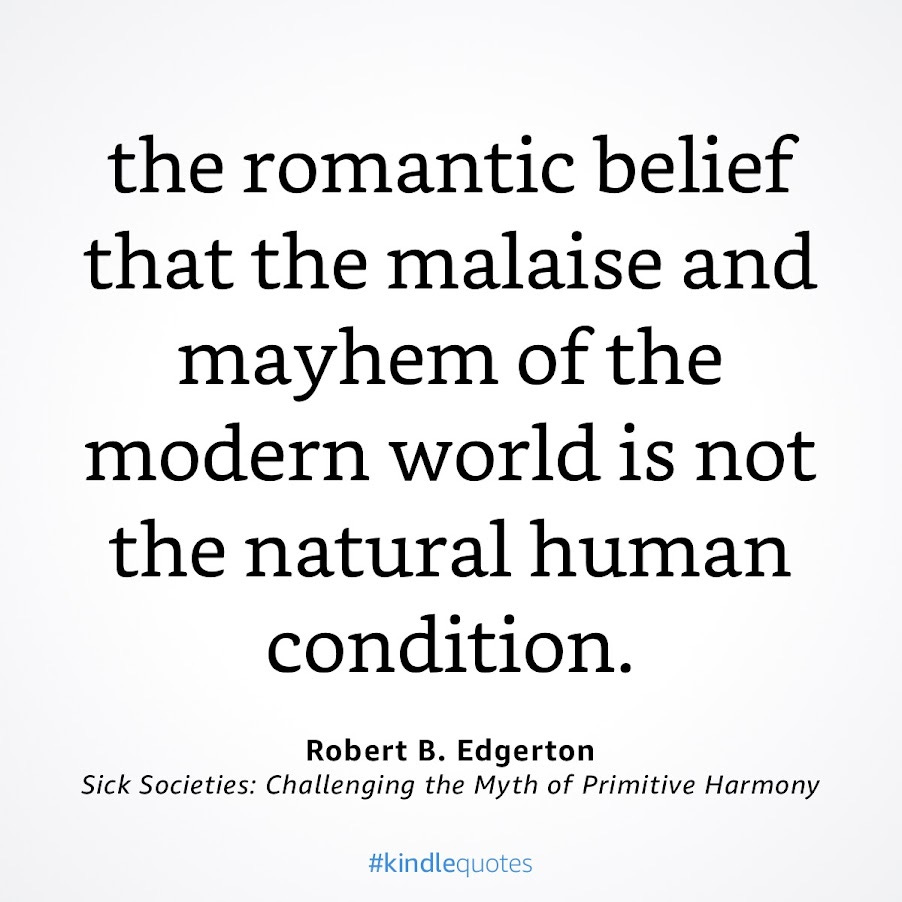
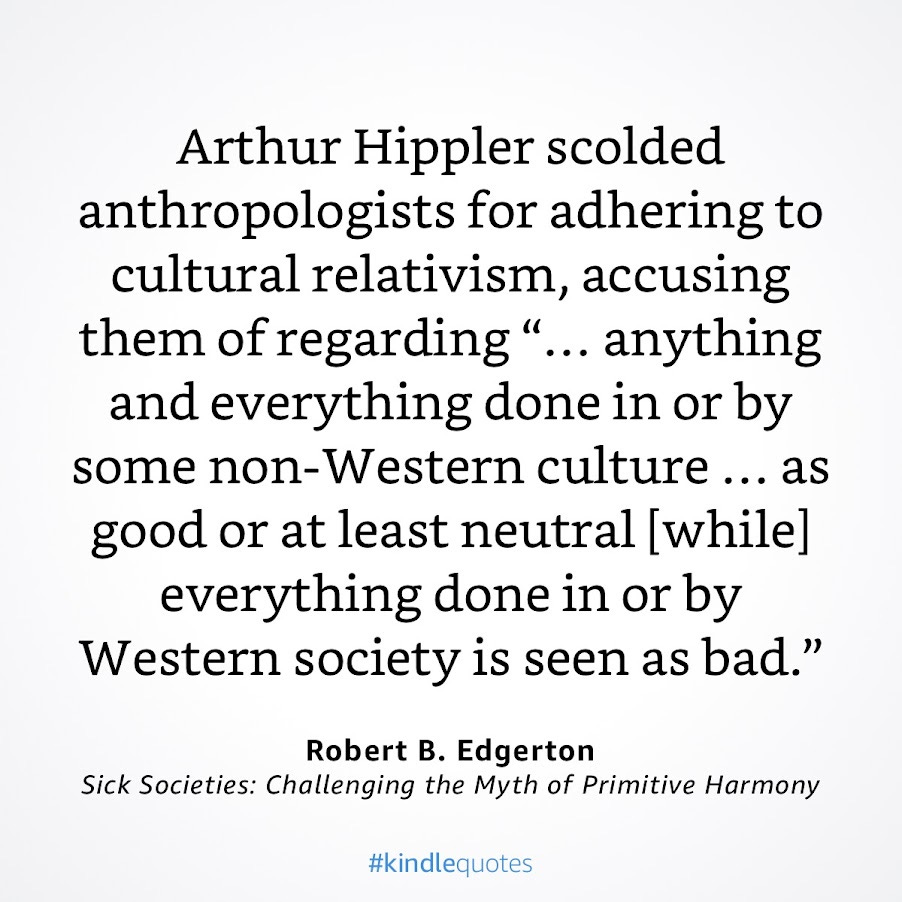
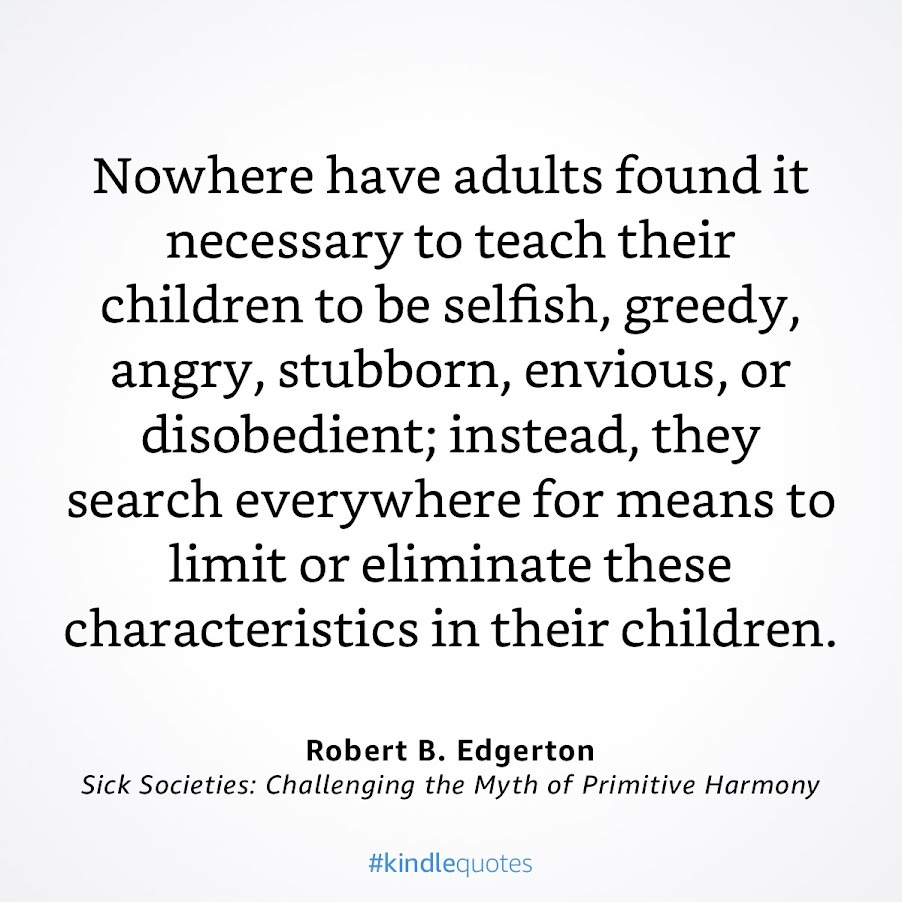
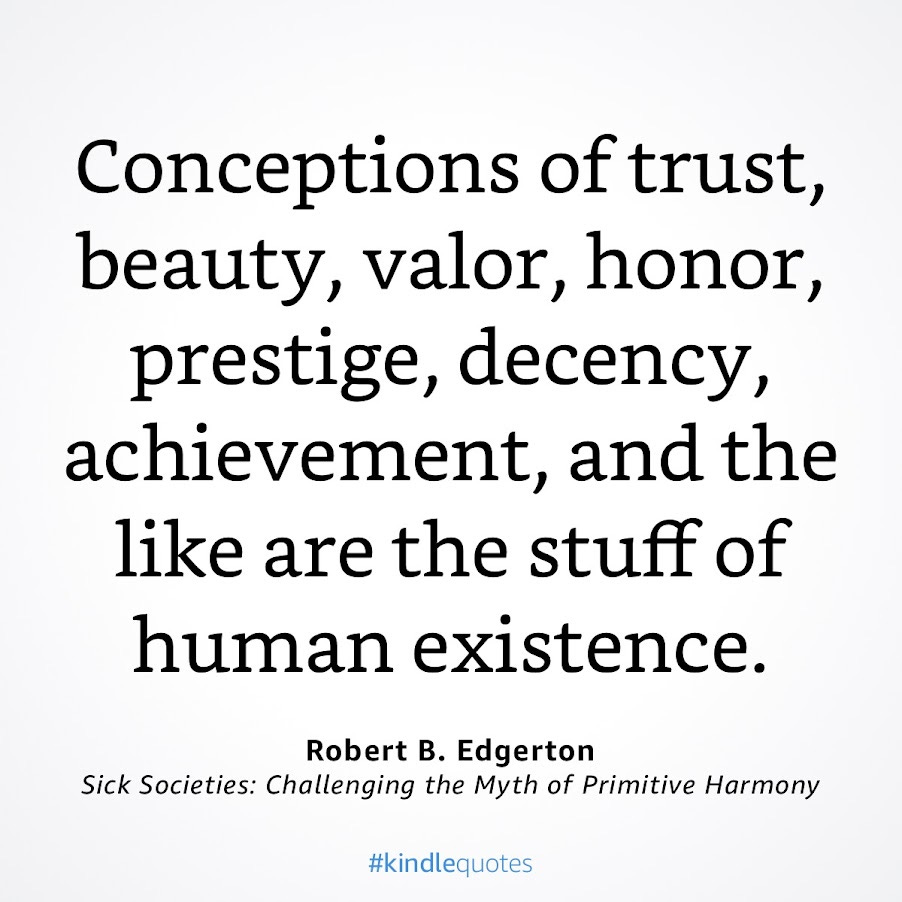
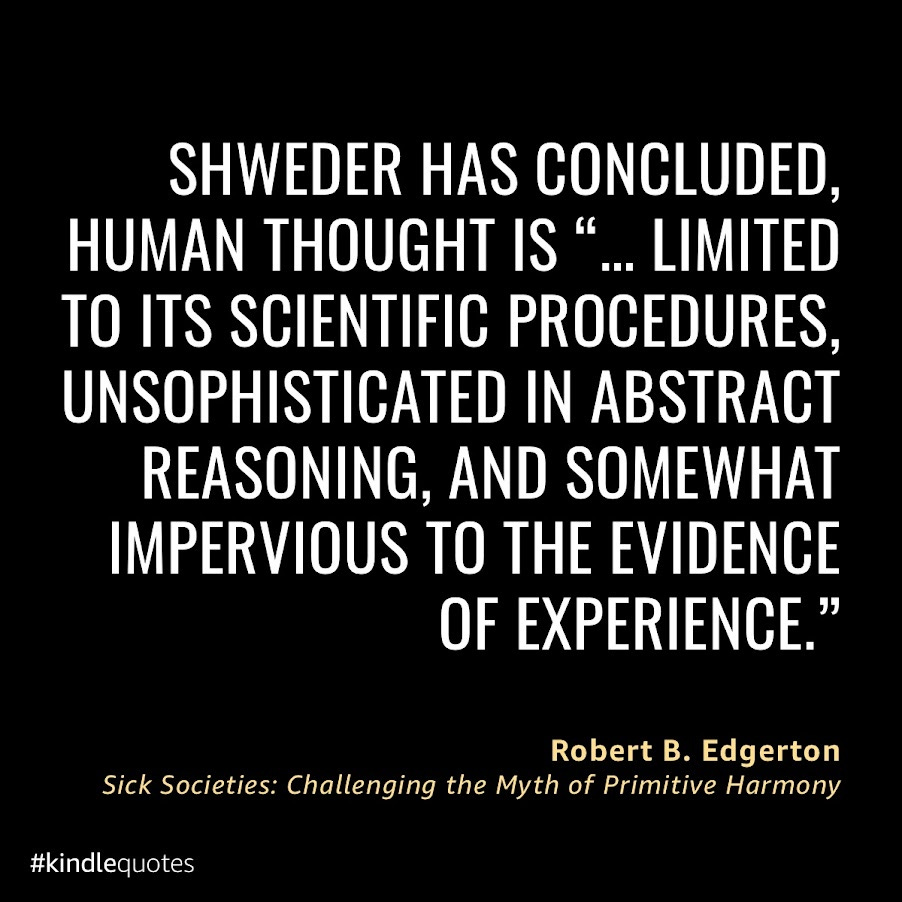
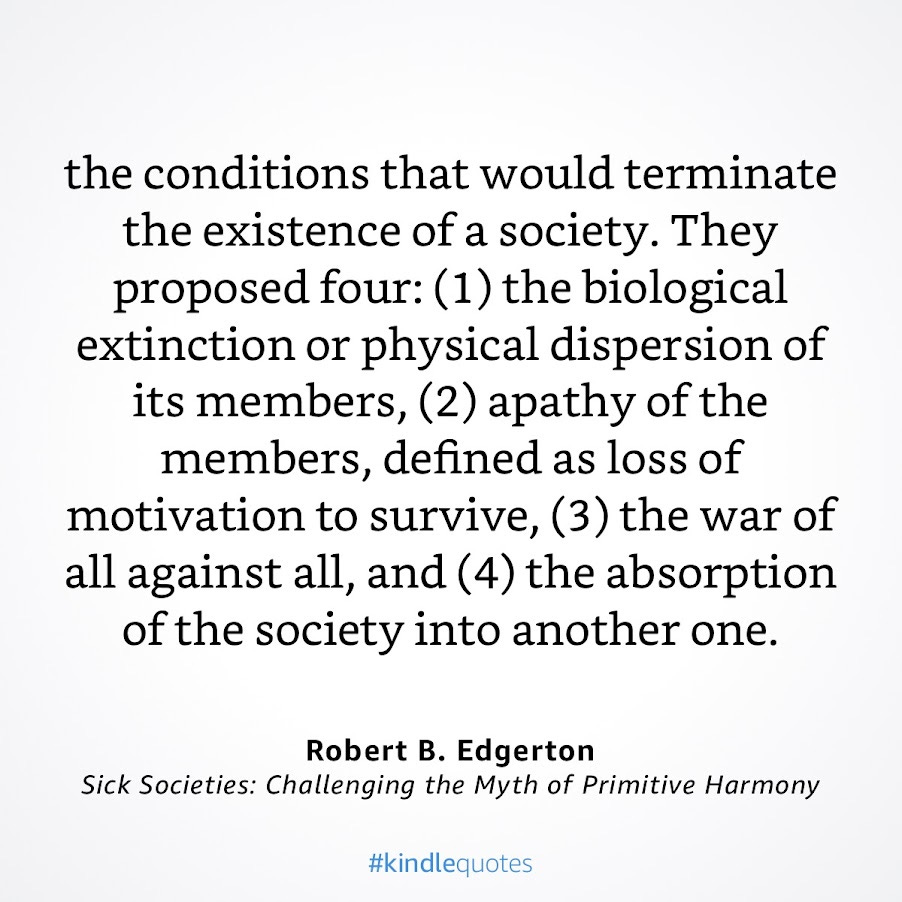
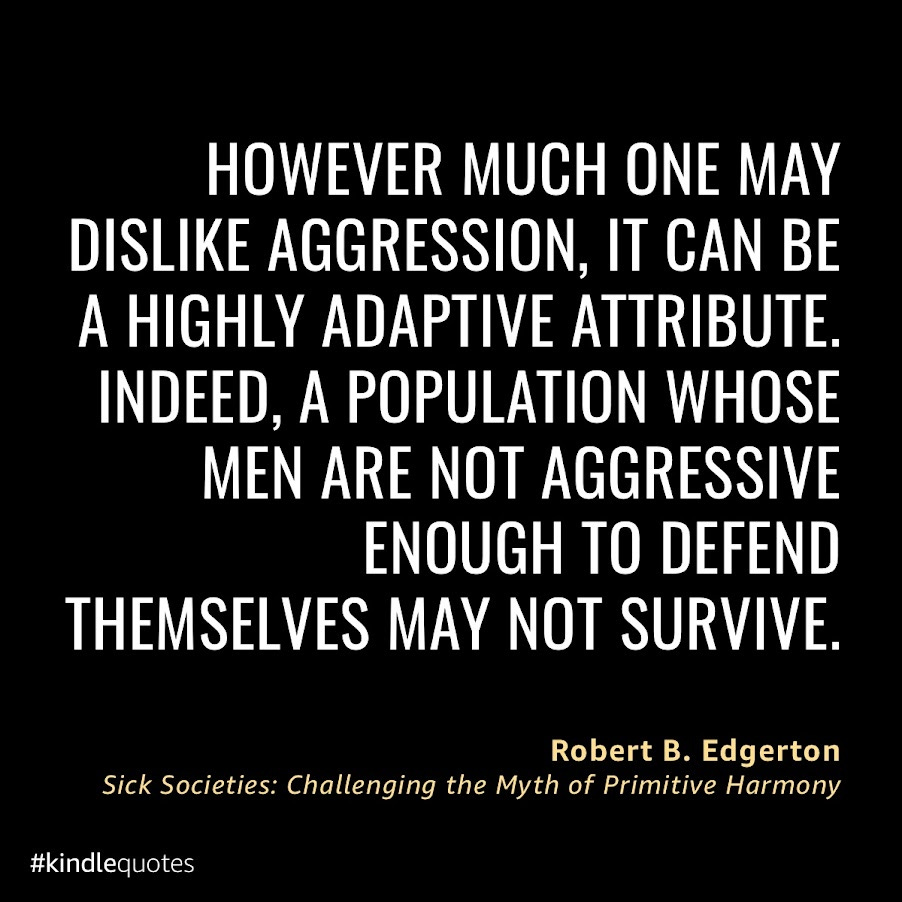
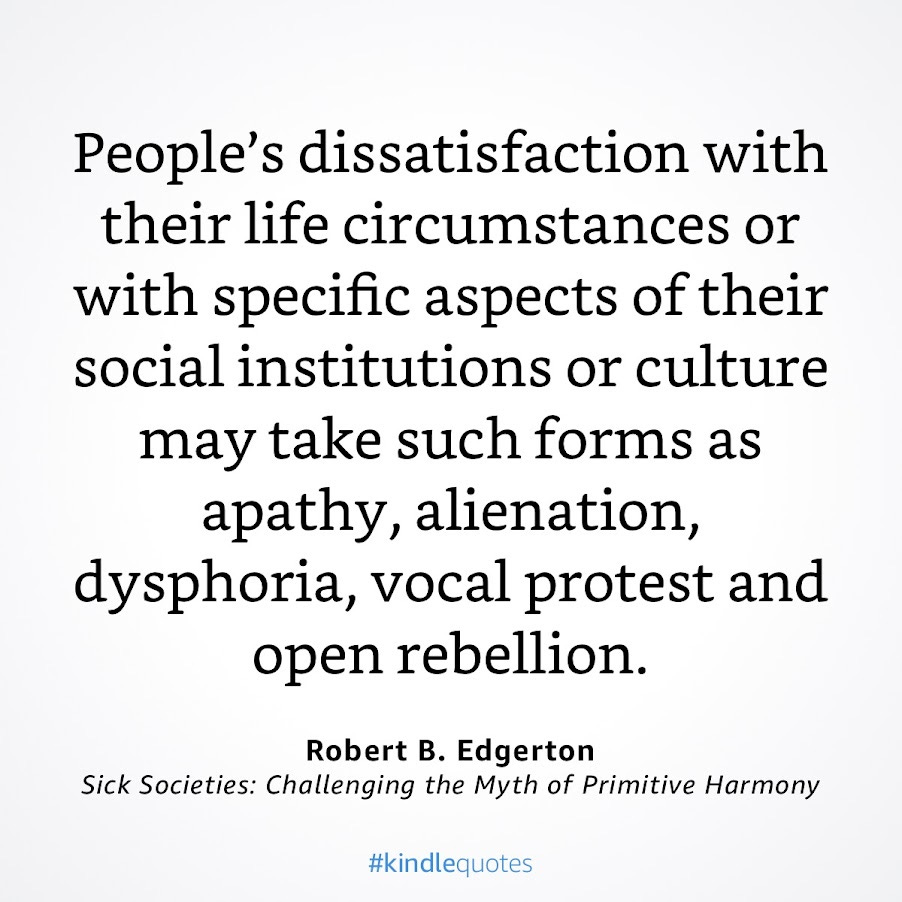
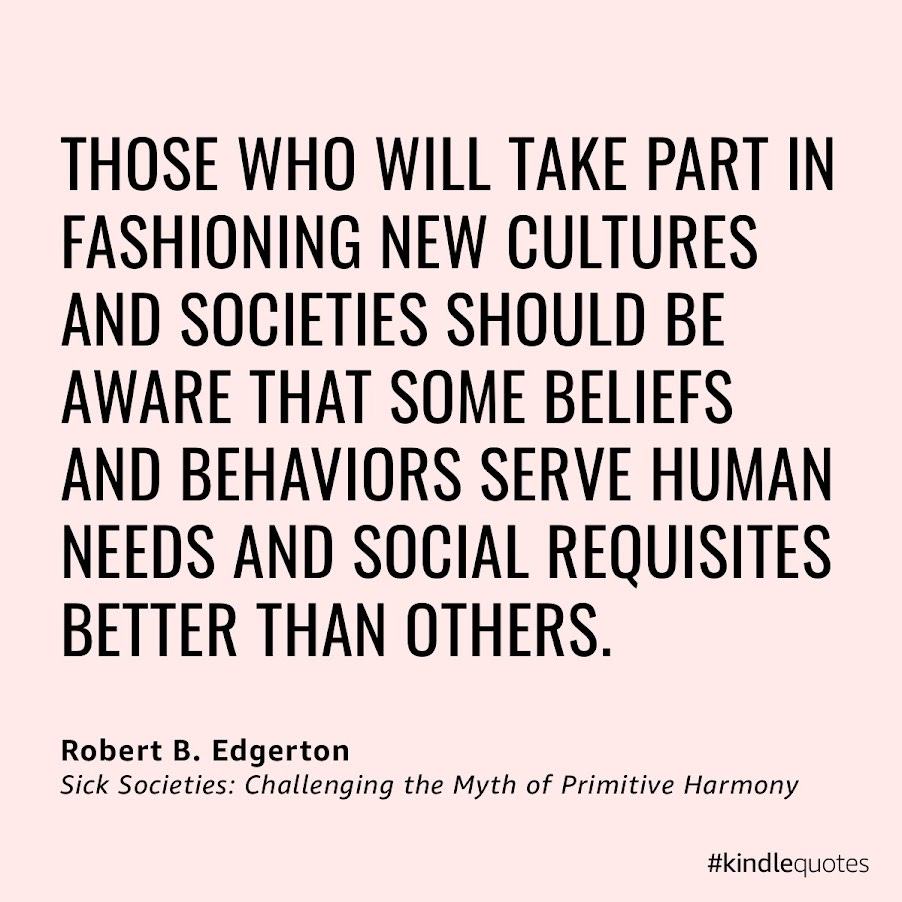
Yep, and burn me if you want for mess-quoting, none the less, A Man's a Man and he includes a' That .
One major difference, comparing long ago primitive societies, those before the start of this century with today's masses.
Mass communication, transportation, obligation, etc.
Mass hysteria, for example has probably always been with us but, localized and diluted, reductio ad absurdum (1518 dancing mania in Alsace?) , by surrounding (Hör zu, sieh dir, er, Hey looks at those crazies over there in Alsace...) can dos 'cause we gotta do or starve and die.
Today, as there's only one society, civilization, ours, and we freely share such even if we have to bomb nonbelievers into acceptance of it. A society which masses this and that to the masses. So today, hysteria, mass hysteria is no longer localized. Welcome to the age of ̶A̶q̶u̶a̶r̶i̶u̶s̶ ̶ Mass Psychosis.
On the bright side cultures moved on past periods of mass hysteria. Ours is bigger it'll be harder and take longer. Javier Milei's chain saw making things right again in Argentina . We may need some D13 bulldozers.
Dangit young lady, your essays often throw me off on strange tangents! -grin-
Thanks -- my sort of book, but a pity about the ebook price. I'll watch for a sale.